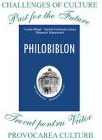Main Menu
Home
About Us
Call For Paper
Chief Patron
Patron
Advisory Board
International Editorial Board
Technical Advisors
Associate Editor
Reviewers
Conference Organizers
 Generate E-Certificate
Generate E-Certificate
 Past Issue
Past Issue Other
Special Issue
Indexing and Listing
Authors Guidelines
Past Issue
Past Issue Other
Special Issue
Indexing and Listing
Authors Guidelines
 Download Paper Template
Publication Fee
Download Paper Template
Publication Fee
 Online Payment
Review Process
Copyright Form
Publication Ethics
Contact Us
Admin
Disclaimer
Online Payment
Review Process
Copyright Form
Publication Ethics
Contact Us
Admin
Disclaimer
 Generate E-Certificate
Generate E-Certificate
 Past Issue
Past Issue Other
Special Issue
Indexing and Listing
Authors Guidelines
Past Issue
Past Issue Other
Special Issue
Indexing and Listing
Authors Guidelines
 Download Paper Template
Publication Fee
Download Paper Template
Publication Fee
 Online Payment
Review Process
Copyright Form
Publication Ethics
Contact Us
Admin
Disclaimer
Online Payment
Review Process
Copyright Form
Publication Ethics
Contact Us
Admin
Disclaimer
Date/Time
News and Events
Create & Edit Pdf

Serene Docs
Published Books
Browse Books
Dates for Author
 Call for Papers
Call for PapersFebruary 2026
Volume 16, Issue 02
Send manuscripts to:
[email protected]
For UGC CARE, Scopus and Web of Science Publication:
Whatsapp: +1 469-844-0367
India Helpline
Indexing
ISSN: 2249-2496 |
Volume 10, Issue 10 (October 2020)
| PARTICULAR | Page No. |
|
Ansari P A
Abstract: People do migrate and cross-national borders for their livelihood since history. This process of migration is mostly visible in the developing countries like India. In India especially for the southern state of India (Kerala), Gulf has become an un-ending labour source since decades; especially after the oil boom of 1970s. This oil boom has given rise to great investment programs for the oil-producing Arab countries, which results in huge increase of demand for labourers. These labour gaps is filled by the workers from the developed countries mostly from the workers of Kerala; India. The higher rate of emigration towards the Gulf has shown a larger impact in the social and cultural life of people in Kerala. Even the food habits, socio-cultural lifestyle has been adapted from the Arab culture. The socio-economic links and development in Kerala from the Gulf money is huge; even their one-fifth of the total state GDP is Gulf money. However, there is huge exploitation for the workers engaged in the low paid jobs. Their well-being is challenged in both the origin and destination states. Download full Length Paper...... |
1-15 |
|
DipanwitaBiswas, Dr.MandiraGhosh
Abstract: Exploring different category of students problem behaviors‟inside the classroom, it is also important to identify the students Common behavioral problems, reason from their misbehavior and the disruptive ones from the teachers‟Perspectives. This study aimed to look at the conceptions of primary school Students behavioral problems in classrooms, and to spot the main common, disruptive, unacceptable problematic behaviorfrom teachers perspective. A list of student‟s complaint and misbehavior was generated. Results showed that the foremost common and disruptive problem behavior was verbal aggression, physical aggression,quarrelling with classmate and destroying things in term of indisciplinedisobedience and rudeness. The teachers perceived student behavioral problems as those behaviors‟ involving rule breaking,the implicit norms or expectations, being inappropriate within the classroom settings and upsetting teaching and learning, which mainly required intervention from teachers. Also attempt to see the fundamental behavior behind this sort of behavior Download full Length Paper...... |
16-25 |
|
|
26-30 |
|
This Paper was Presented in International Conference organized by Indira Gandhi National Centre for Arts(IGNCA), New Delhi on Oct 15, 2014
Abstract: The African Diaspora in Medieval Deccan offers a new insight about space, political culture, ethnogenesis and Military Labour Market in History of India as well as it provides a new understanding of medieval India from perspective of regional History. This paper traces History of African Diaspora in Medieval Deccan from 14 to 17 century. Tracing issues of Migration in Medieval Deccan, it examines processes of ethnogenesis in African Diaspora and analyses role of space and political culture in shaping contours of ethnogenesis in Medieval Deccan. Further, the paper analyses dimensions of Military Labour market in Medieval Deccan in determining participation of African Diaspora and its impact on evolution of politics in Medieval Deccan. Although, the presence of African Diaspora in the Indian subcontinent has been dated since 10th century onwards, particularly participation in politics from Delhi Sultanate to Bengal is very well documented in primary sources of Ibn Battuta, Muhammad Qasim Ferishta, Jahangir and Others. Similarly, M.N.Pearson, K.N.Chaudhuri, B.N.Nicolini and others have analyzed the trading and cultural activities from eastern coast of Africa to Western Coast of India in Indian Ocean. But, the continuous presence of African Diaspora is documented with reference to Medieval Deccan from 14th century onwards in the primary sources such as The Burhan-iMaasir, Tazkirat-ul-mulk, Akbarnama, Tuzuk-i-jahangiri, The English Sources, The Portuguese sources etc. These sources provide very important information about unfolding of social and political processes in Medieval Deccan and interaction with other spaces of Indian subcontinent as well as medieval world. Download full Length Paper...... |
31-46 |
|
Aparajita
Abstract: International Labour migrants have become one of the important key features of the process of globalisation. Around the world, there are millions of people who have left their home in search of employment and migrated to foreign lands. This affects the economic and social life of both the labour sending and labour receiving countries. Migrant workers by sending remittances contribute in the foreign exchange earning of the country and in the growth of their GDP. They act as the engine of growth for developing countries and reduce unemployment in the countries to which they belong. However, these advantages come at the cost of exploitation of migrant workers who faces discrimination and exploitation at the work place in labour receiving countries. Though, Human Rights are the basic and natural rights which are inherent in any individual without any discrimination on the basis of race, religion, culture, language and any other status, there are several threats to the human rights of the migrant workers. Download full Length Paper...... |
47-64 |
|
Dr. Meenakshi Jindal, Mr. Tanish Wangoo, Ms. Saumya Gupta, Ms. Kesarpreet Kaur
Abstract: The impact of COVID-19 on all aspects of human life throughout the world: be it social, cultural, economic or health, etc. is alarming. The education sector has been the worst hit, where all the educational institutions are forced to close down in order to minimize the rate of infections. In order to counteract the possible academic loss of the students due to the school closures, the option of online teaching gained momentum. Though immediate relief from the situation is not in sight, one has to remain hopeful. Once the schools reopen, what would be the new normal in the School system? And how do students perceive these new normal about the school education system? To analyse this question, the investigators researched upon the topic by studying the perception of the major stakeholders of education, that is, the students, regarding the Post COVID school education system. The data of 211 students was collected online through the Perception Scale uploaded on Google forms form secondary level students of private schools of Chandigarh and Punjab. The data was analysed using descriptive and inferential statistics. The results of the study showed that (i) around 47% students perceived that, Post COVID, the Teaching- Learning will shift towards online mode and approximately 30% perceived it to be in Traditional mode, (ii) around 43% perceived that school activities will follow online mode whereas around 36% perceived that school activities will remain as it was earlier, (iii) even for evaluation, around 59% perceived that online mode is more convenient mode and around 23% perceived that post COVID, evaluation will return to its original mode, and (iv) finally for school administration, around 78% students perceived that Post COVID school administration will be more cautious and follow COVID guidelines in school for the protection of everyone, whereas only 10% perceived that there will not be any need of COVID guidelines in schools. (v) There is no significant difference in the perception of boys and girls regarding the post COVID education system. The study showed the divided perception of students on various aspects of School education Download full Length Paper...... |
65-82 |
|
MRS. NILOFAR RASHID REZA
Abstract: Indian literature in English has journeyed a long way to achieve its present glory and grandeur. Beginning with the trio of Raja Rao, R.K.Narayan and Mulk Raj Anand, today it is assimilated in the rubric of post-colonial literature. At present it is enriched by a sizeable numbers of women writers read and acclaimed all over the world. Their works offer penetrative insight into the complex issues of life. The fictional concerns of these women writers are not limited to the world women and their sufferings as victims of male chauvinistic society; they also express social, economic upheavals in Indian society. Among these women writers Anita Desai has earned a separate space for her particular attention towards psychological insight and existential concerns. Her sensitive portrayal and understanding of intrinsic human nature makes her writings captivating. She herself admits her preference for her internal world of the psychic space that has always been a major concern in her fictional writings. Download full Length Paper...... |
83-94 |
|
Dr. Asha Kumari
Abstract: In the present study,Comparative discussion of all the three groups, townspeople, villagers and tribalsmeasure the attitude towards housing background and social change was reviewed. It was envisaged that meaningful difference would be found between the three groups towards social change a relatively high attitude towards social change would be found among the townspeople. It is clear from the comparative interpretation of the statistical results that the mean of the social change attitude score of the townspeople has been found to be 15.58, the mean of the social change attitude score of the villagers is 10.26 and the mean of the social change attitude score of the tribals is 6.14. In connection with the measurement of social change attitude among the three groups, the APRC Psychology Measurement, 1986 has been used. It was proved by the study results that among the townspeople is not found to be highly favorable towards social change and more favorable attitude in the other two groups. Download full Length Paper...... |
95-100 |
|
Dr. Arti Rani
Abstract: Women faced terrible problems since Vedic period due to our man dominated society. Even after independence many rituals misguided the status of women. Child marriage, Sati Pratha, Prada pratha, restriction to widow remarriage, widows exploitation, devdasi system etc. These all makes big hurdle in their social, economic and personal development. During British rule in India and after independence Dr. B.R. Ambedkar fought for the rights of women and made such provisions in Constitutions of India so that women must be treated equally in the society. The provisions of equality to women made for all streams. Today women feel self confident and self dependent only because of work of Dr. Ambedkar. Dr. Ambedkar a freedom fighter and a scholar who made tremendous efforts to lead the society on the path of liberty, equality and fraternity. He was the first who broke down the barriers in the way of advancement of women in India. He laid down the foundation of sincere efforts by codifying the common civil code for the Hindus and the sections of the Indian society. Dr. Ambedkar's first step towards his movement was started during1920.He launched a journal called mook Nayak in 1920 and Bahiskrit Bharat in 1927, to eradicate the Hindu social order and laws. He put focused on the upliftment of depressed as well as women. His main target was to spread the importance of gender equality and exposed the problems of the oppressed and women. Dr. Ambedkar spent his whole life for the betterment of women. He created awareness among poor, illiterate women and inspired them to fight against the unjust and social practices like child marriage, devdasi, prada pratha and so on. He always believed in movements laid by women. He also added that if the women from all walks of life are taken into confidence, they may play a significant role in the social reforms. Women can only eradicate the social abuses .He stated that every married women must participate in her husband`s activities as a friend. But she must show the courage to deny the lives of slaves. She should insist on the principle of equality. Download full Length Paper...... |
101-106 |
|
Sanjoy Barman
Abstract: Literacy and sex ratio are two vital components of any society which give an overview about status of female in respect to male as well as socio-cultural well being. An analysis on spatio-temporal patterns of literacy and sex ratio of Jalpaiguri district and correlation between literacy and sex ratio has been made an attempt in this work, which is the prime aim and objective of this study as well. As of 2011 census of India, a continuous increasing patterns of literacy and sex ratio has been recorded in Jalpaiguri from 1951. But undoubtedly there is a vast extent of imbalance in terms of literacy and sex ratio among the community development blocks of the study region. Literacy rate and sex ratio of the district is 73.40% and 956 respectively. Educational status of people i.e. literacy plays crucial role for optimum sex composition in a society. So correlation between literacy and sex ratio is enormously significant, which is examined here by using Spearman’s Rank Order method. Consequently the correlation between them is ρ= -0.88, which is rather high and negative correlation. Download full Length Paper...... |
107-117 |
|
|
118-124 |
|
Dr. Jaya
Abstract: Marriage is necessarily the basis of social foundation from which important legal rights and obligations emerge in ancient times, marriage was considered to be decided by the god and divinity was associated with it. It is considered to be a sacred social institution. With the ever changing society and human psychology, the concept of marriage and relationship has also evolved. The upcoming generations and considering relationship ever more liberally. One such concept of live-in relationship is being adopted by numerous couples around the world. This concept has slowly paved its way in the Indian scenario as well. On May 22, 2013, the apex court judgement that if a man and a woman in love decide to live together as a couple, it is well within their right to life and by no means can be deemed a criminal offence. As well as 27th September 2018 in one another judgement of supreme court said Adultery can be a ground for civil wrong, a ground for divorce, but not a criminal offence. It's time to say that husband is not the master of women. Psychology studies the mental aspect that determines effects on human behaviour. A legal system is necessary for the proper functioning of a society since it tries to solve numerous problems existing in the society in today's time. Psychology can help the present decision makers in making decision by providing more accurate images and pictures of human perceptions and preference. This paper highlights according to Indian culture the controversial judgement of supreme court that it will destroy the sanctity of marriage and it would have an adverse impact on the youths. Download full Length Paper...... |
125-132 |
|
Dr.L.Romabati Devi
Abstract: A study of ShashiDeshpande‟s novels will automatically address the intricate issues of gender of which women are always as the victimized subject . Women in Indian society as they are elsewhere has been subjected to a position where gendering is prevalent under which social and cultural norms have been designed to opposed women as a class identified with their sex . Although gender is a social construct dividing man and woman as different categories of domination and subjugation. It is often related to how men and women are sexually divided and determined. Sex is a biological aspect of man and woman which has been used on the expectation of the latter by making deliberate confusion between sex and gender in the patriarchal society . Download full Length Paper...... |
133-150 |
|
Malay Muskan |
151-161 |
|
Gangesh kumar
Abstract: Pandemic plays as much vital role in shaping literature as literature plays in framing our responses to the pandemics. Pandemic makes literature more sensitive to its disastrous consequences on humanity. Literature provides us deepest and insightful record of events during pandemics and tries to provide consolation in times of need. Pandemics are not unfamiliar to us. We, still, are undergoing one epidemic like Covid-19 which confined people in isolation, made street empty, shopes closed and introduced a new mode of communication like virtual meeting and seeing our loved one in small corner of the screen. Download full Length Paper...... |
162-166 |
|
Mr.LaxmanaNaik H, Dr. Smt. ManjulaChalawadi
Abstract: Socio economic discrimination and exploitation of weaker section by the dominant groups on the basis of factors like status , income level , race, caste , religion , nationality , gender, education etc. has been regarded as a universal future with its conspicuous presence in developing economies Asia and sub Saharan African countries. IN India people have been subject to discrimination and exploitation since times immemorial. It is a evil impeding national integrity and unity. It has resulted in conflict and friction right from local regional to international situations. Public authority in many countries has been trying to put an end to this discrimination by bringing about May policy regulation. But the crux of the issue is that unless there is attitudinal change in people's perspective it's perhaps next only to impossibility to solve the crises. This article examines various facets of discrimination as well as impact. It focuses the banjara community in Shivamogga district and exhibits silver line with the hope that there is improvement in social attitude and intensity of discrimination is gradually fading in socio economic aspect. This community has registered substantial transformation over the years to a attain and enjoy a better socio economic status. But discrimination persists in blood of human beings Download full Length Paper...... |
167-178 |
|
Shilpi Roy Choudhury
Abstract: Most of the govt aided schools were lagging behind the private schools for various reasons. This paper highlights the attitude of students towards Govt. Aided schools. The purpose of the research paper, was to analyse the nature of the attitude of secondary school students towards school and to find out the gender difference (if any) of the students’ attitude towards school. The nature of the paper was quantitative and it was done through survey method. After the analysis and interpretation of the paper it was found that students’ attitude towards school was average in nature and gender wise there was a difference in attitude towards school in this study it was also found that girls’ attitude towards school was better than that of the boys. Download full Length Paper...... |
179-195 |
|
Roseline Awuor
Abstract: The purpose of this study was to assess the effect of organization strategy on implementation of pre-primary education in Kisumu County, Kenya. Specifically the study assessed the effect of organization structure, leadership style, organization culture, and resource allocation on implementation of preprimary education in Kisumu County, Kenya. The study employed explanatory survey design. From a target population of 658 early childhood development education schools, a sample of 249 was selected for the study as is determined by Yamane and selected using stratified sampling techniques. The study used primary data collected through semi-structured selfadministered questionnaire. Download full Length Paper...... |
196-204 |
|
Bhupender |
205-214 |
|
Dr. SHRUTI KUMARI
Abstract: Adjustment is necessary for normal growth of an individual in the life and profession. Employed trains persons for healthy adjustment in various life situations of the present and future. And aggression has been man‟s natural behaviour in all the ages.Aggression is an important human motive and constitutes an important segment of personality. Unemployed person major aggressive. Download full Length Paper...... |
215-222 |
|
Sumit kumar pachouri, Dr. Kalpana Chaturvedi
Abstract: Cultural nationalism is a form of nationalism in which the nation is defined by a shared culture and language rather than shared ancestry or ethnicity. Cultural nationalism is typically a moderate viewpoint within a larger spectrum of nationalist ideology, rather than a separate movement. Download full Length Paper...... |
223-233 |
|
Prem Kumar
Abstract: Intertextuality is widely used in the production of various genres of literature in India. It is most widely used in smṛti literature. Download full Length Paper...... |
234-243 |
|
Dr. Mala Hazarika
Abstract: Muga culture, deeply intertwined with the Ahom people of Assam, India, encompasses the intricate art of Muga silk production, Download full Length Paper...... |
244-250 |
|
डॉ. दिवांशु कुमार |
251-254 |













